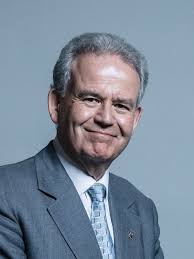The speech made by Julian Lewis, the Conservative MP for New Forest East, in the House of Commons on 19 May 2022.
Thank you very much for calling me to speak so early, Mr Deputy Speaker. When one has discussed these sorts of subjects for a very long time, it becomes rather difficult to avoid simply saying the same things over and over again. On the principle of trying to say at least one new thing that I have not contributed to a previous debate, I wish to refer to the role of formerly neutral states in the formation of NATO.
It comes as something of a shock to me to realise that it was in 1975—substantially before the admirable defence spokesman for the Scottish National party, the hon. Member for Glasgow South (Stewart Malcolm McDonald), was even born—that I had a conversation with the late, great strategic historian Professor Sir Michael Howard on the proposed subject of my doctoral studies, which was how the British empire, as it still was at the time, prepared to adopt a strategy for after the defeat of Germany and Japan, and how the possible revival of German and Japanese threats gave way to a confrontation with our erstwhile allies, the Russians. What I was surprised to find was that the first thinking about this went back to the end of 1941: Trygve Lie, the Foreign Minister-in-exile of the Norwegian Government, made an approach to the British Foreign Office and was soon joined by the Foreign Ministers in exile of Belgium and the Netherlands. What did Belgium, the Netherlands and Norway all have in common? It was that in 1940 they had all been neutral, and in 1940 they had all been invaded and occupied nevertheless.
The proposal that those three Foreign Ministers put forward, which in the fullness of time led to the Brussels treaty and eventually the formation of NATO, was that Britain should be offered strategic bases in their countries once they had been liberated, and once the war was over, so that they could never again be occupied, despite their pacific intentions, by another European power.
Therefore, there is a certain appropriateness in the decision now of two countries—Finland and Sweden—with a tremendous history of neutrality, albeit strongly armed neutrality for purposes of self-protection, to apply now to NATO in order to prevent themselves being exposed and suffering the fate that Ukraine looked as if it was going to suffer, and which Belgium, Norway and the Netherlands had suffered in 1940.
That leads me to the only other point that I will make in this short contribution, which I have said before and will continue to say. Despite many years of thinking about these matters, all I can come up with in the end are three concepts summarised in half a dozen words. The three concepts are: deterrence, which is carried out by nuclear weapons primarily; containment, which is carried out by conventional weapons primarily until such time as the potential enemy has had a chance to evolve or implode, but either way until it can no longer cause a threat; and, finally, the unpredictability of future conflicts—the unpredictability of when or if they will arise, and the unpredictability of what will happen when they do arise.
My mind goes back to 24 February, the day of the invasion, when there was an exchange with the Prime Minister on the Floor of the House. At that stage, the best suggestion that I could make—at that time, let us face it, none of us expected Ukraine to resist as successfully and as courageously as it has so far been able to resist—was at least to offer a Ukrainian Government-in-exile a home here in Britain if their country became, as appeared likely, overwhelmed by massive Russian firepower. So far at least, there is every sign that such an offer will not have to be made. The lesson that we must take away from that is that we must always have a full range of military preparedness, because we do not know what the threat will be, we do not know when it will arise, and we do not know how it will turn out when it happens.
I end by saying, as I have said so many times before, that as recently as the mid-1980s we used to spend 4.5% to 5.1% of our gross domestic product on defence. Several years after the fall of the Berlin Wall, we were still spending 3.5% of GDP on defence. Successive Defence Committees have now called—even before the present crisis arose—that we should raise our target not from the minimum of 2% of GDP, but to at least 3% of GDP. It is a matter of priority. What has happened to Ukraine shows where our priorities must lie.
